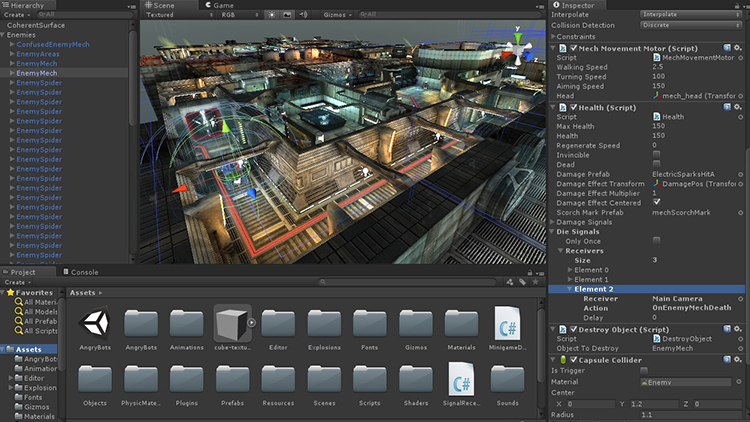Introduction to Online Game Development Communities and Forums
In this chapter, we’ll explore the importance of community and sharing in the game development process. We’ll introduce you to online game development communities and forums where developers can connect, collaborate, and showcase their work. By participating in these communities, you’ll have the opportunity to learn from others, receive feedback on your projects, and contribute to the vibrant ecosystem of game development.
Example 1: Joining Online Communities
Explore popular online game development communities and forums, such as Unity Connect, Reddit’s r/gamedev, and the Unity Forum. Sign up for accounts and introduce yourself to the community by sharing your background, interests, and goals as a game developer. Engage in discussions, ask questions, and offer help to others to establish connections and build relationships with fellow developers.
Example 2: Showcasing Your Projects
Share your game projects with the online community by creating development blogs, sharing screenshots and videos, and posting updates on your progress. Use platforms like itch.io, Game Jolt, and IndieDB to publish and distribute your games to a wider audience. Encourage players to provide feedback and suggestions for improvement to iterate on your projects and make them more polished and enjoyable.
Example 3: Participating in Game Jams
Participate in game jams and collaborative game development events to challenge yourself, improve your skills, and meet like-minded developers. Join popular game jams like Ludum Dare, Global Game Jam, and itch.io’s game jam calendar to work on creative projects within time-limited constraints. Collaborate with teammates, experiment with new ideas, and push your creative boundaries to create unique and memorable game experiences.
Example 4: Seeking Feedback and Advice
Seek feedback and advice from the community by sharing your game prototypes, demos, or works-in-progress for playtesting and critique. Create feedback threads on forums or social media platforms to gather constructive feedback from players and developers alike. Actively listen to feedback, identify areas for improvement, and iterate on your projects to address issues and enhance the overall quality of your games.
Example 5: Collaborating on Game Projects
Collaborate with peers and mentors on game projects to leverage their expertise, share resources, and accelerate your learning and development process. Join online game development teams, Discord servers, or Slack communities to find collaborators with complementary skills and interests. Work together on shared projects, divide tasks, and communicate effectively to achieve common goals and create outstanding games.
Example 6: Hosting Virtual Meetups and Events
Organize virtual meetups, workshops, and events to connect with fellow developers, share knowledge, and foster a sense of community within your local or online game development network. Use video conferencing platforms like Zoom, Discord, or Google Meet to host live presentations, panel discussions, or networking sessions. Invite guest speakers, industry professionals, or experienced developers to share their insights and experiences with the community.
Example 7: Contributing to Open Source Projects
Contribute to open-source game development projects and libraries to give back to the community and improve your coding skills. Explore popular open-source repositories on platforms like GitHub, GitLab, or Bitbucket and look for projects that align with your interests and expertise. Contribute bug fixes, feature enhancements, or documentation improvements to help maintain and grow the open-source ecosystem of game development tools and resources.
Example 8: Mentoring and Teaching Others
Share your knowledge and experience with aspiring game developers by mentoring and teaching others in online workshops, courses, or tutorials. Offer one-on-one mentorship sessions, group coaching programs, or live streaming sessions to guide newcomers through the game development process. Provide feedback, answer questions, and empower others to overcome challenges and achieve their goals in game development.
Example 9: Participating in Game Development Challenges
Participate in game development challenges and competitions to challenge yourself, gain exposure, and showcase your skills to the community. Join themed challenges like the Weekly Game Jam, #ScreenshotSaturday, or the Unity Developer Day challenge to create games based on specific themes or constraints. Share your progress, celebrate your achievements, and learn from the experiences of fellow participants.
Example 10: Building a Portfolio and Online Presence
Build a portfolio and establish an online presence to showcase your game projects, skills, and achievements to potential employers, collaborators, and players. Create a personal website or portfolio on platforms like ArtStation, Behance, or LinkedIn to showcase your game development work, including screenshots, videos, concept art, and design documents. Share your portfolio with recruiters, colleagues, and industry professionals to highlight your talents and attract new opportunities in game development.
By actively participating in online game development communities and sharing your work with others, you’ll enrich your learning experience, expand your network, and elevate your game development skills to new heights. Embrace collaboration, feedback, and community engagement as essential components of your journey as a game developer, and you’ll find endless opportunities for growth, inspiration, and success in the dynamic and vibrant world of game development.

Leave a Reply